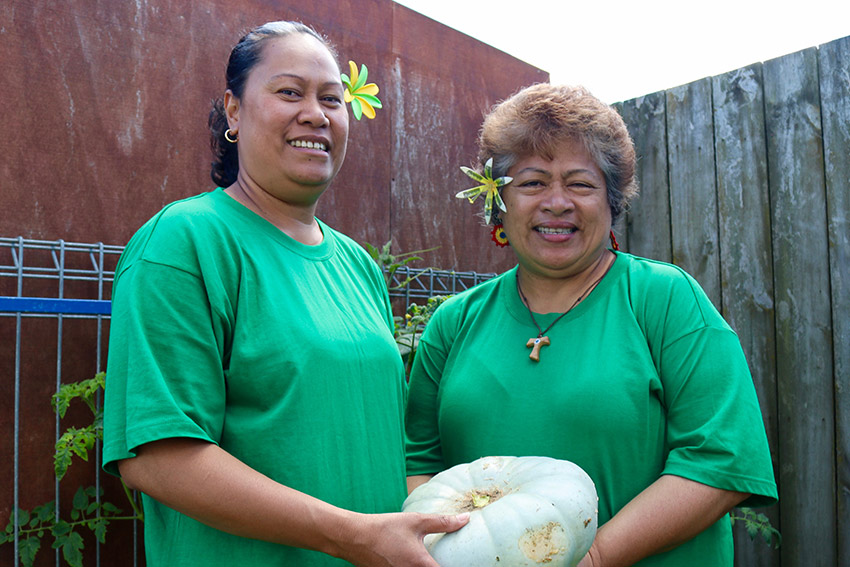
Twenty-six Early Childhood Centres (ECE) in Otara and Papatoetoe are a part of a new initiative to mobilise and sustain health promotion within their preschools.
At the initial Healthy Families Manukau, Manurewa-Papakura (HFMMP) workshop with the group, teachers were posed with the question: What would a 21st Century ECE look like?
The early childhood educators began developing ideas that would not only promote healthy eating but develop holistic environments and lifestyle habits in young children.
A successful initiative has been with East-Tamaki based ECE Fetu-I-Sasa’e Aoga Amata. The school uses a Japanese composting technique called bokashi to use in their vegetable gardens at school.
“We started recycling and composting because we saw a lot of food being wasted after the children’s meal times,” says supervisor at Fetu-I-Sasa’e Aoga Amata, Lesina Leung-Wai.
“There are a lot of good outcomes that come from the bokashi. Children learn how to separate everything, like the landfill, the recycling and the compost.”
“The juice that comes from this technique works really well in the soil too. We take that juice and put it all over the garden plots. When the kids get bored they always ask if they can go outside to the garden.”
The ECE also cooks soup with the children using the vegetables they grow.
“It is a good way for children to learn how to prepare the vegetables,” says Leung-Wai.
“We start with the young children and then they tell their parents. We keep parents updated in our newsletter about our garden, so they also come and help water the vegetables.”
The preschool has been using bokashi compost and growing vegetables for over two-years. But since joining the HFMMP initiative, it has been able to connect, learn and gain support from other ECE’s in the area.
“We don’t know if we are doing well unless we receive feedback from our community. So, it’s important we keep sharing our knowledge,” says Lesina Leung-Wai.
Healthy Families Manukau, Manurewa-Papakura Accelerator, Mary Roberts and Activator, Amio Ikihele, are part of the team leading the project.
They say other teachers who attended the workshops have been inspired by the Samoan ECE’s holistic approach to gardening and recycling.
“They have already traded phone numbers, ideas, networking, sharing information and knowledge. Some of them wanted to learn bokashi composting too,” says Roberts.
“The good thing that has come out of the co-design is that the pre-schools weren’t aware of how well they were doing and how much of a difference they were actually making in the schools,” says Ikihele.
“So, community practice has come out of that and peer-to-peer learning.”
Reviewing leadership buy-in is next on HFMMP’s agenda to ensure the ECE initiatives remain self-sustainable. Parents of children will be also be interviewed to gain their perspectives on the new health promotion in the schools.
Healthy Families Manukau, Manurewa-Papakura video resources have been made profiling some of the ECE’s and the health promotion initiatives they have introduced in their schools.
Caption: Alovao Fogavai and Lesina Leung-Wai from Fetu-I-Sasa’e Aoga Amata.
Fetu-I-Sasa’e Aoga Amata ECE has been teaching children how to recycle and separate food scraps which will be used in their bokashi composting. The compost is then used in the schools vegetables plots. Children and their families get to benefit from all the vegetables they grow.
Otara preschool, Akoteu Kato Kakala, wanted to incorporate ‘being active holistically’ into their learning centre. They have encouraged parents to pack healthy lunchboxes for their children and are making frequent use of their local parks and reserves.
The school is also teaching children how to recycle and plant vegetables and have incorporated saying lotu (prayer) in their curriculum planning.
Taonga Education Centre in Wiri has been making placemats with pictures of fruit and vegetables. The placemats designed by teachers and children are prompts for discussions around healthy eating habits at the lunch or dinner table.